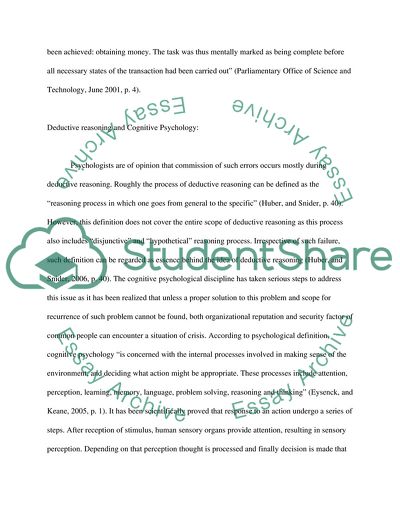Cite this document
(Why People Make Errors When They Engage in Deductive Reasoning Term Paper, n.d.)
Why People Make Errors When They Engage in Deductive Reasoning Term Paper. https://studentshare.org/psychology/1739815-discuss-two-accounts-of-why-people-make-errors-when-they-engage-in-deductive-reasoning
Why People Make Errors When They Engage in Deductive Reasoning Term Paper. https://studentshare.org/psychology/1739815-discuss-two-accounts-of-why-people-make-errors-when-they-engage-in-deductive-reasoning
(Why People Make Errors When They Engage in Deductive Reasoning Term Paper)
Why People Make Errors When They Engage in Deductive Reasoning Term Paper. https://studentshare.org/psychology/1739815-discuss-two-accounts-of-why-people-make-errors-when-they-engage-in-deductive-reasoning.
Why People Make Errors When They Engage in Deductive Reasoning Term Paper. https://studentshare.org/psychology/1739815-discuss-two-accounts-of-why-people-make-errors-when-they-engage-in-deductive-reasoning.
“Why People Make Errors When They Engage in Deductive Reasoning Term Paper”. https://studentshare.org/psychology/1739815-discuss-two-accounts-of-why-people-make-errors-when-they-engage-in-deductive-reasoning.


